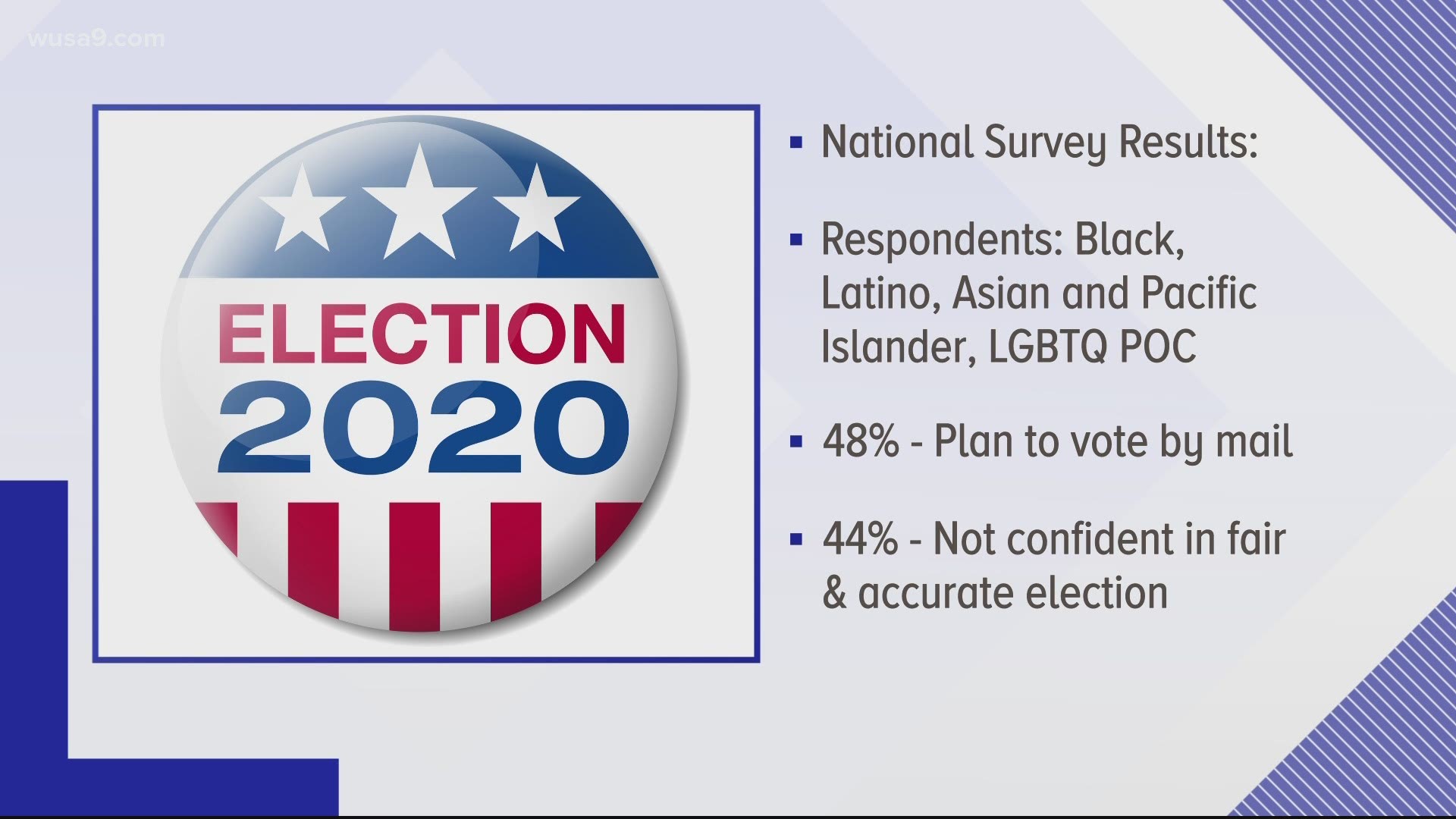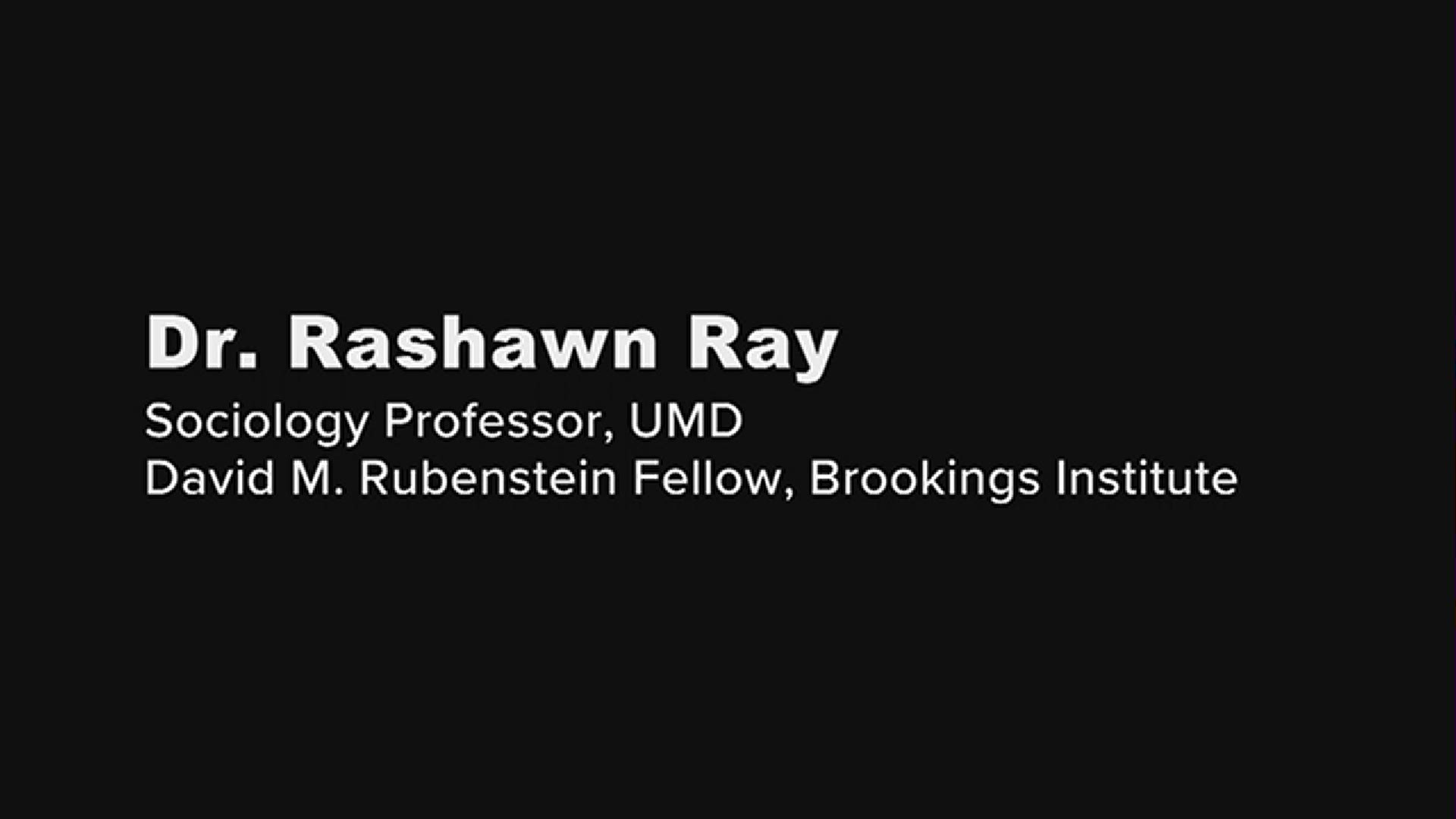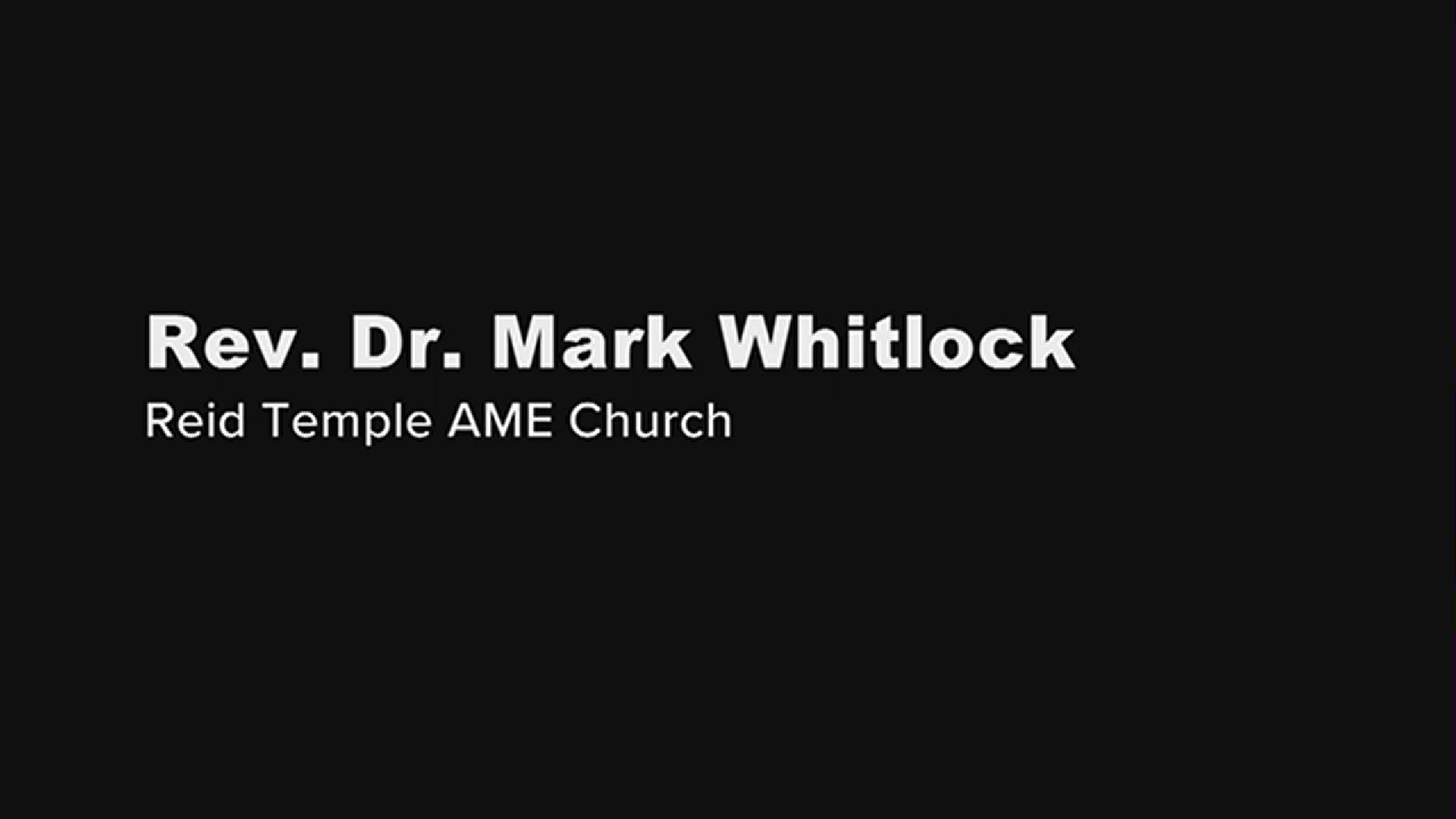WASHINGTON — A new survey reveals America’s communities of color might not be comfortable with voting by mail in the upcoming November elections.
The Human Rights Campaign Foundation partnered with the messaging and strategies firm HIT Strategies to conduct a survey about how people of color felt by the upcoming elections and voting by mail.
The survey’s respondents included Blacks, Latinos, Asian American and Pacific Islanders, and LGBTQ voters of colors.
Forty-four percent of the survey’s respondents said they were not confident this year’s election would be conducted fairly or accurately. Only 48% of respondents said they planned to vote by mail.
“This was research that we did not see anywhere, and it was research that we knew would be vital to understanding the real and perceived barriers our communities face as well as how we can overcome them,” Human Rights Campaign Foundation President Alphonso David said.
Terrance Woodbury, a founding partner at HIT Strategies, said more work could be done to show people of color they can have faith in the election process particularly when it comes to voting by mail.
“Lack of confidence in the integrity of this election is a cause for concern,” he said.
The survey also showed three of the greatest reasons its respondents were suspicious of voting by mail was because they were concerned:
- their ballots would be lost or not counted
- voter fraud may increase
- the vote-counting process would be extended
Many jurisdictions around the United States are promoting voting by mail as a safe alternative to voting at polling places this election cycle due to the spread of the coronavirus.
University of Maryland sociology professor and David M. Rubenstein Brookings Institution Fellow Dr. Rashawn Ray recently wrote an article with Rev. Dr. Mark Whitlock, of Prince George’s County’s Reid Temple AME Church, titled "Setting the record straight on Black voter turnout."
The article, which appeared on the Brookings Institution’s website, touched on the issue of voter suppression and how it has impacted minorities in the past.
Ray said some people of color may be concerned about that history when mailing their ballots in the fall.
“Black people have had a long history with dealing with voter suppression, dealing with gerrymandering, dealing with tactics when they would try to go vote, dealing with what we call a ‘poll tax’, where people would ask them questions like, ‘how many bubbles are on the bar soap?’” Ray said.
He said voting suppression tactics are not as overt as they have been in the past. However, Ray said the closing of polling places in the South and the continued use of gerrymandering across the country shows the practice is still alive and well.
Ray said our region’s voters need to prepare in advance to make sure their votes are counted.
“People have to pay attention to the states in the DMV area,” he said. “People have to pay attention to the deadlines, and they need to ensure that their ballots are in the mail weeks before the deadline for the election.”
Ray added local leaders must also make sure their jurisdiction’s regulations are up to par.
Whitlock said the African Methodist Episcopal church has a long history of working to make sure black people register to vote.
He said his church and other AME congregations have worked on ways to encourage voter registration among black people virtually ever since the pandemic began.
“The concerns is that there's confusion,” Whitlock said in regard to mail-in voting. “Clearly, there are some who would suggest that that conclusion stops people from voting. There must also be education about how you [mail-in] vote.”
However, he said people of color should not let past concerns of voter suppression stop them from going to the polls.
“Vote, vote, vote,” he said. “Too many people have marched and died and certainly spoken truth to power so that we may have a voice in this presidential election.”
Woodbury said in order to combat minorities’ concerns about mail-in voting, leaders must demonstrate how voting by mail has reduced voting fraud and increased voting participation among under-represented communities.
The survey also showed that many people of color feel the election could bring better things ahead for their communities.
“One powerful similarity between all the voters we surveyed is hope,” David said. “In spite of the darkness and the challenges of these times, voters are hopeful, resilient, and ready to cast their votes this November.”
Thirty-two percent of the survey’s respondents said they had “hope” going in to the November election.
Latino Victory Foundation, the NAACP, UnidosUS, and Woke Vote also helped to conduct the survey.



